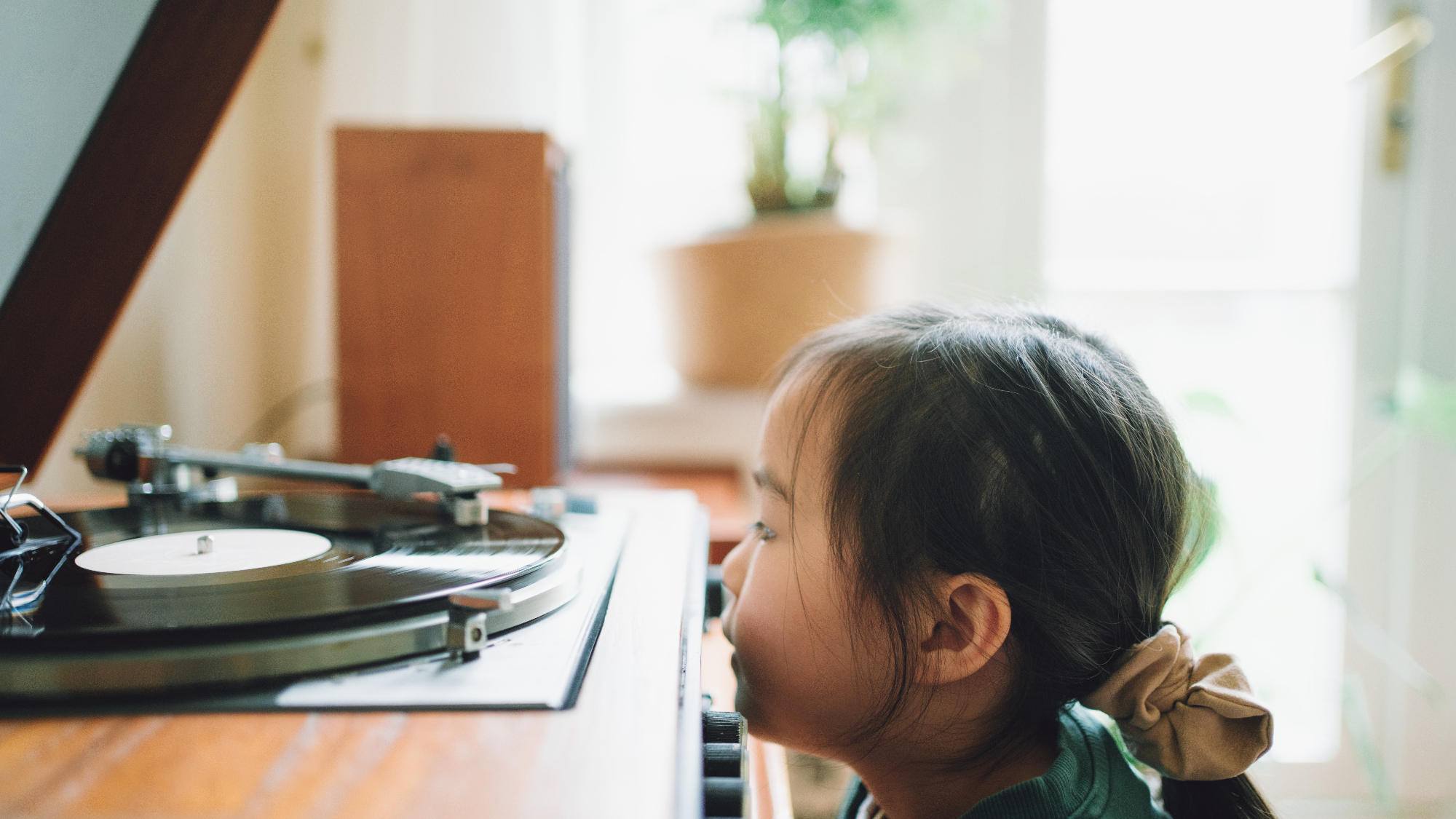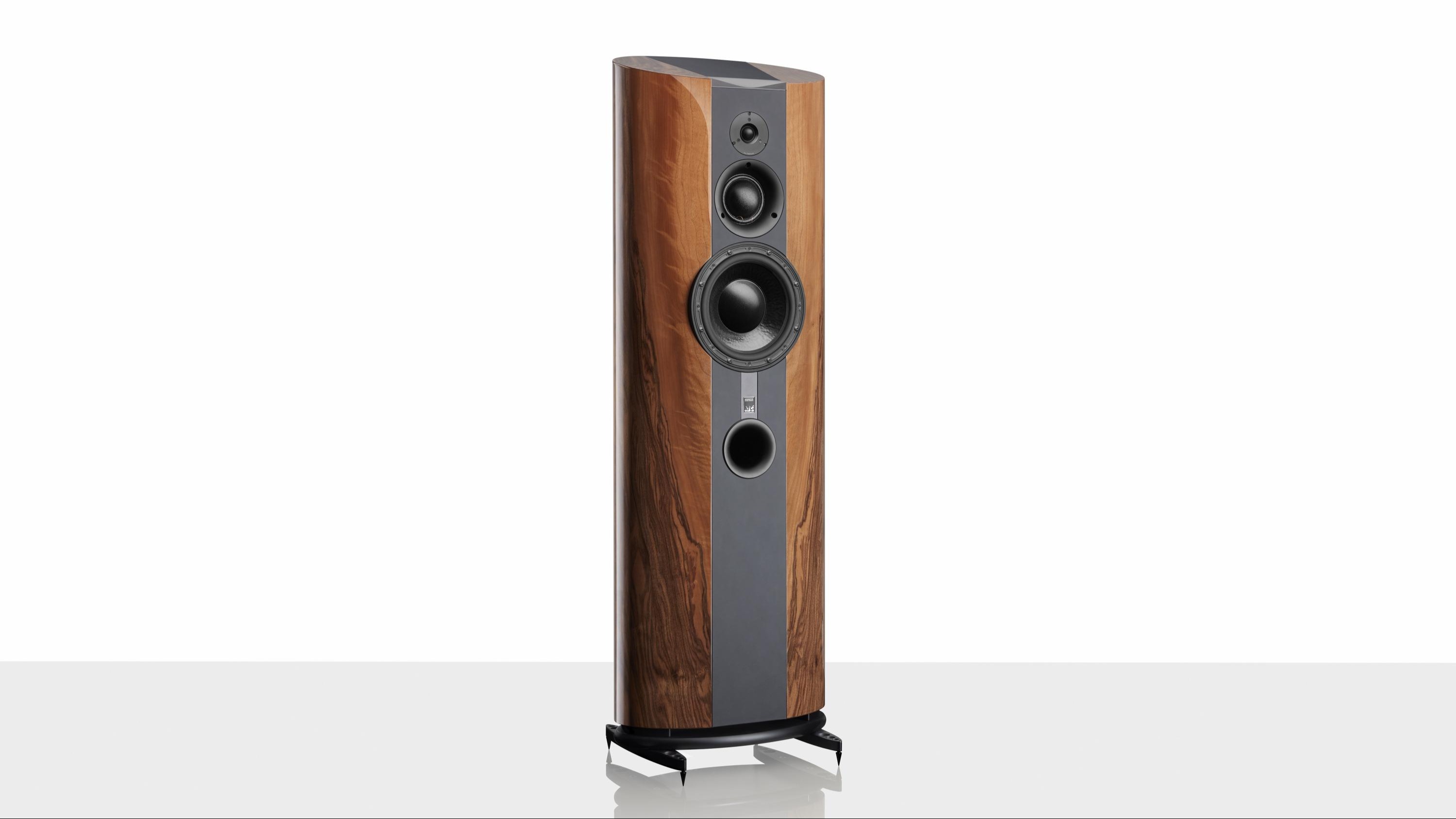Why don’t more young people have a hi-fi system?
Many issues threaten the future of hi-fi, here's what we can do about it

The latest hi-fi, home cinema and tech news, reviews, buying advice and deals, direct to your inbox.
You are now subscribed
Your newsletter sign-up was successful
I recently read a comment in a forum that said something to the effect of “Why don’t people under 30 have hi-fi systems?” It’s a reasonable question and one that certainly warrants being asked. I’ve just entered my thirties and, as much as my friends of a similar age are huge music fans, I don’t know any (except myself) who own hi-fi separates, passive speakers, and the rest of it.
It made me reflect on how I got into hi-fi. I’m lucky enough to have a dad who has always had audio gear and actively shared his love of music with me from a young age. Not only that, but he’s a certified car boot sale connoisseur with a keen eye for any tech deals. Without his finds, I wouldn’t have a system.
For the last decade, I’ve had a pretty decent little set-up: a Sony turntable and a Technics stereo integrated amp (with matching CD player and cassette deck) going into a pair of Bowers & Wilkins floorstanders. This was all acquired at car boot sales over the years. It’s mostly older equipment and didn’t cost a fortune, or anywhere close to the new price would have been. Thankfully, my dad knew the best locations to visit for car boot sales and we would always be sure to rock up at opening time, around 6am – ‘early bird gets the worm’ and all of that, which is certainly true for tech and vinyl hunters at car boot sales in particular.
I count myself very lucky that my dad was able to introduce me to hi-fi and help get my system started. Without his help, I probably wouldn’t be anywhere near as well equipped. Several factors prevent, restrict or deter other younger people from getting into hi-fi. Firstly, it’s not a cheap endeavour and this isn’t helped by a perceived lack of a ‘budget hi-fi market’ existing these days.
The other big reality that needs to be faced is that the cost of living is so restrictive. Spending hundreds of pounds on hi-fi hardware seems like madness to many young people, or is simply impossible. Also, headphones and earbuds – which can serve multiple purposes in any location – usually take precedence over something that will stay at home in one spot.
Not only this, but our generation has never strictly had to spend big money to play music. We have grown up in an era where listening to music has been increasingly accessible. Convenience is king and, for many, the speakers built into laptops and mobile phones – everyday, multi-tasking items that are already part of our lives – suffice. When this is what you’ve spent years getting used to, a wireless speaker or multi-room system will seem extremely impressive in comparison and this is where the journey ends for a lot of people. 'Good enough' is many orders of magnitude better than it used to be, and so entering into the world of hi-fi separates is a huge step up, rather than an entry point.
Is this a new issue, though? Have people always generally been ‘music first’ and cared less about the gear or quality, as long as they heard their favourite music? Some commentators seem to think so, especially fans of heavier music where energy often takes precedence over finer details. Listening spaces are also becoming harder to properly create for anyone without a detached house and ample funds. Most cheaper rental properties and newer blocks of flats, where a lot of young people find themselves, have thin walls and floors, which doesn’t exactly encourage a loud listening session. Having enough space to fit everything is also an issue in a lot of situations, especially for anyone in a shared home.
The latest hi-fi, home cinema and tech news, reviews, buying advice and deals, direct to your inbox.
The decline of bricks-and-mortar retail experiences and the rise of online shopping have also been factors to consider. The only way to truly experience hi-fi equipment is in person, whether that be in a hi-fi shop, a hi-fi show, or through friends' and parents' set-ups.
So, what can be done in the short term? One obvious answer is to introduce more budget audio components, separates and all-in-one options to the market – something which seems to get further and further away as prices of goods universally creep upwards, unfortunately. The thing is, young people are buying audio gear but it tends to be space-saving, relatively inexpensive wireless speakers and the like. Comparatively, hi-fi is more daunting – there’s stuff to connect and properly match. This is why all-in-one 'lifestyle' products are often entry points into hi-fi for those who choose to delve deeper.
Another solution is to keep sharing the love of hi-fi with those around you. We recently wrote about how transformative teaching your kids the value of hi-fi sound can be, and my story is also a good example of how true this is. People’s ears adapt to their chosen medium or format, and so if you grow up hearing decent amps and speakers, it’s going to be hard to settle for listening through thin, tinny-sounding laptop speakers as you grow up. Now I’m the one sharing the experience. There are plenty of people out there with cheap suitcase record players, and the experience of showing them their favourite records through a proper system is somewhat of a revelation, every time.
We all know that hobbies and interests can’t be forced onto others, especially onto kids, but attempting to pass a love of music (and perhaps more importantly, an appreciation of high-quality audio) down through the generations is a crucial part of what will keep the universal love for hi-fi alive.
MORE:
Building a hi-fi system? Here's the secret to matching the right components
Is there really a ‘right’ hi-fi sound for different music genres?
Ainsley Walker is a staff writer at What Hi-Fi?. He studied music journalism at university before working in a variety of roles including as a freelance journalist and teacher. Growing up in a family of hi-fi enthusiasts naturally influenced his interest in the topic. Outside of work, Ainsley can be found producing music, tinkering with retro tech, or cheering on Luton Town.
